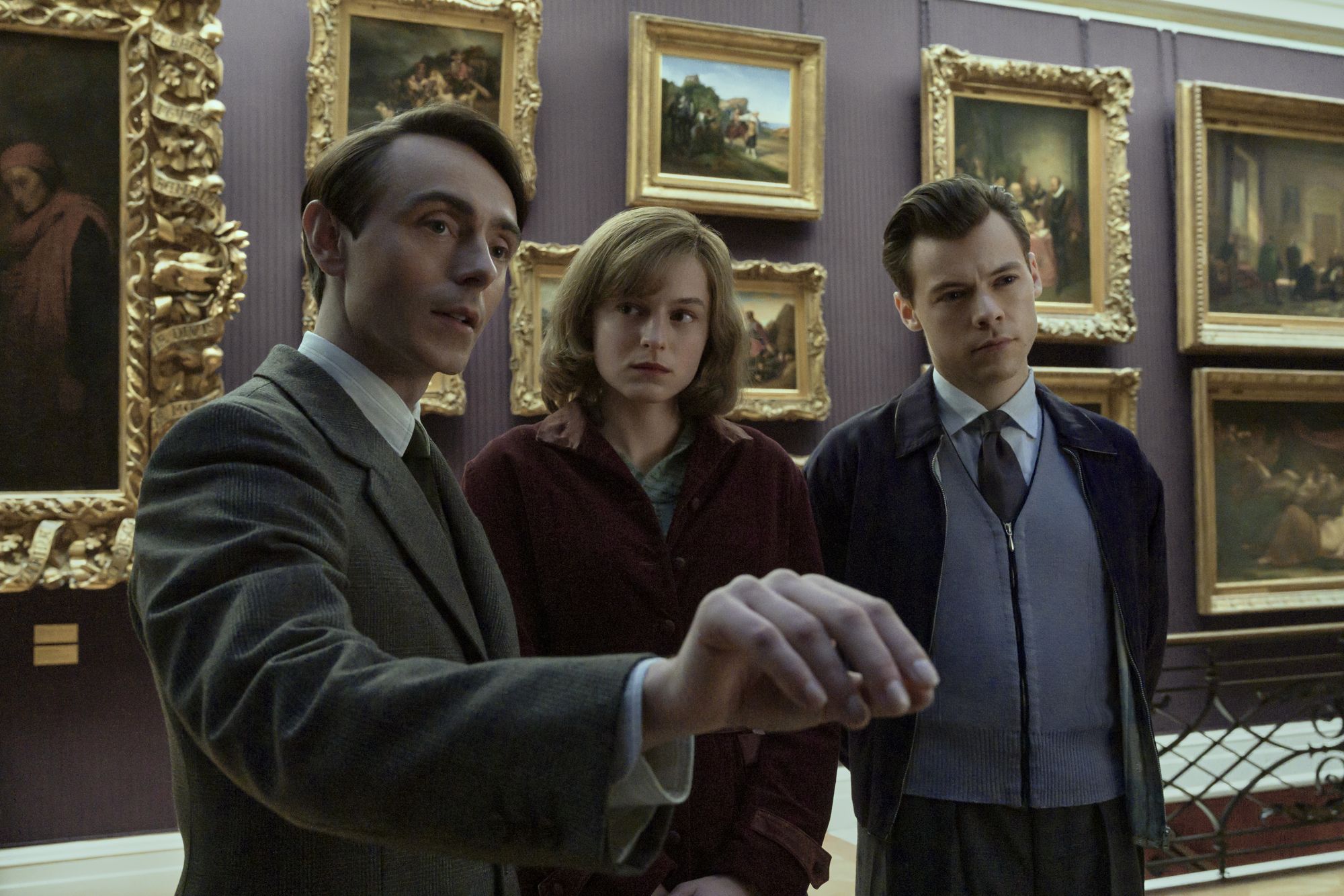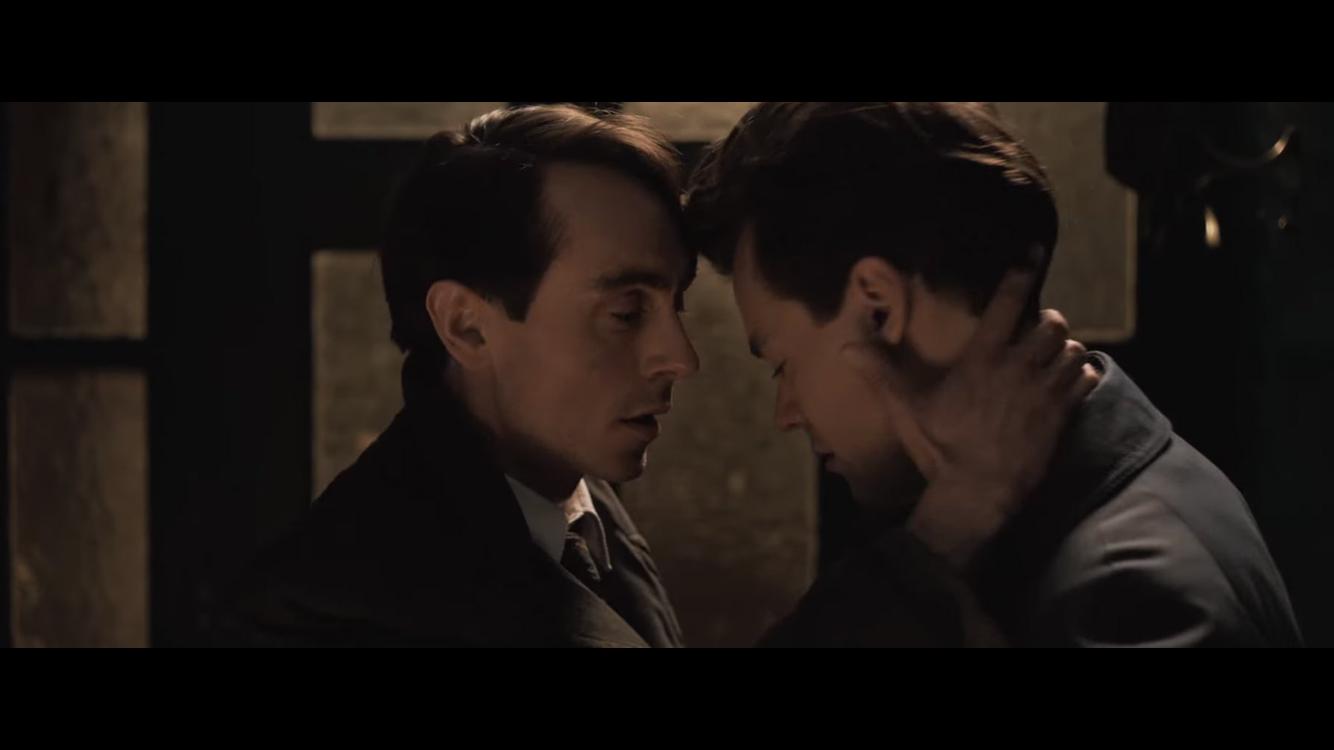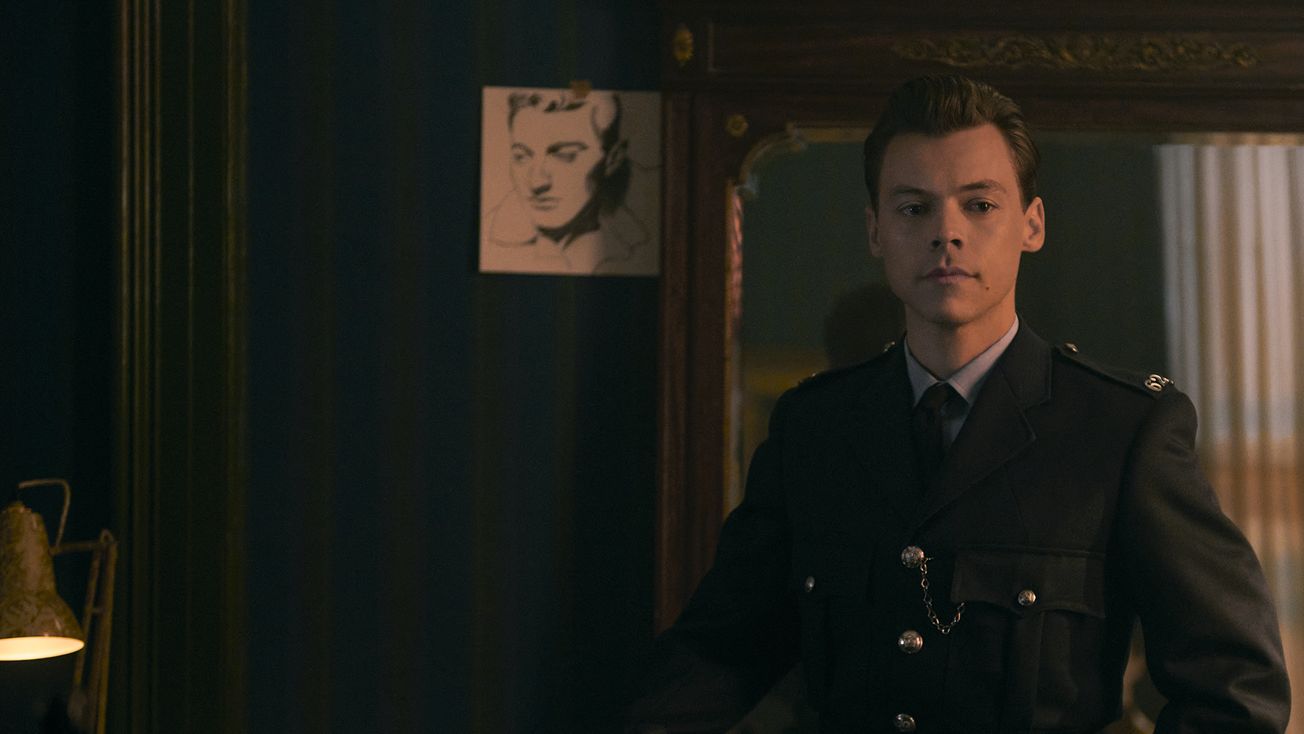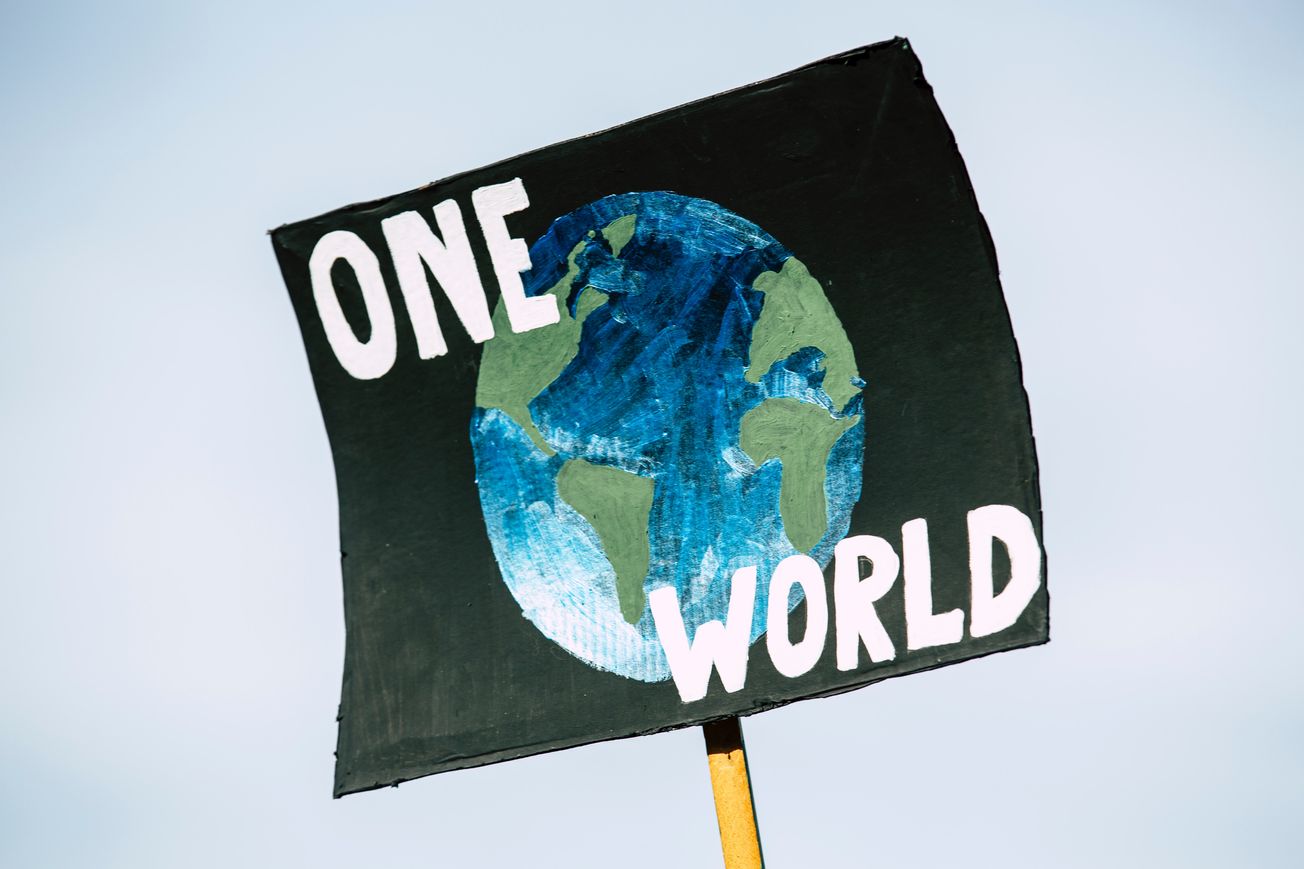By Emily Robson, First Year, Politics and International Relations
Atmospheric, tragic and moving, My Policeman is a simplistic story which, nevertheless, manages to delve into the complex and heart-wrenching emotions surrounding homosexuality before and after its legalisation in the United Kingdom.
Set within a gloomy seaside town, the viewer is instantly introduced to uneasy and unsettling tensions which are juxtaposed by the largely buoyant 1950s soundtrack, featuring music by Dean Martin and ‘The Empires’. A marked feeling of being trapped by the surrounding white cliffs and the writhing sea persists throughout, reflecting the deep internal troubles of the three central characters, played sensitively by Harry Styles, Emma Corrin and David Dawson.

The film explores the effects of the criminalisation of homosexuality on the people who grew up when being gay could result in a prison sentence, shifting backwards and forwards from modern day to the late 1950s. There are some moments, also, when the director, Michael Grandage, touchingly merges the older and younger versions of each character, emphasising the closeness of this oppressive past as well as the longevity of the emotional pain experienced by the characters.
Although, in places heavy-handed, what the film conveys well is how regular people responded to homosexuality’s illegality. Due to the constant building of legal and emotional pressure, each member of the trio becomes fundamentally unhappy with their situation, causing them to act spitefully or betray one another.
The viewer is thus wrapped up in this intense, unstable and moving climate, well captured on screen. There is a definite sadness to the piece, as what should have been strong friendships, tragically break up into divisions, malice, and acute isolation.

It is this isolation that characterises the film. The characters repeatedly voice their concern about being ‘alone’, both physically and mentally. There is a clear fear of not being part of society but merely leading a life outside of it and, of course, the law. The film honestly captures the brutal road to the acceptance of identity, while still acknowledging that the ideas, opinions and prejudices linked to the illegality of homosexuality last long into the modern day.
The film is important in underlining the grief and lifelong suffering felt by those who could not live as they truly wished. All three characters lose something precious in their youth, whether that be love, health, time, or self-acceptance, that can never truly be reclaimed.

What the director clearly lays down is that to quash identity is to force people to lead a life of lies and to embed a foundation of shame and self-loathing that can last a lifetime. Dawson’s character, Patrick, in particular alludes to the fact that nobody wins and everybody suffers when another human is oppressed. In a world where, in various countries, homosexuality remains illegal, My Policeman is a potent reminder not to forget this.
Featured image: Parisa Taghizadeh/Prime Video, Courtesy of IMDB
Did My Policeman have a powerful impact on you?







